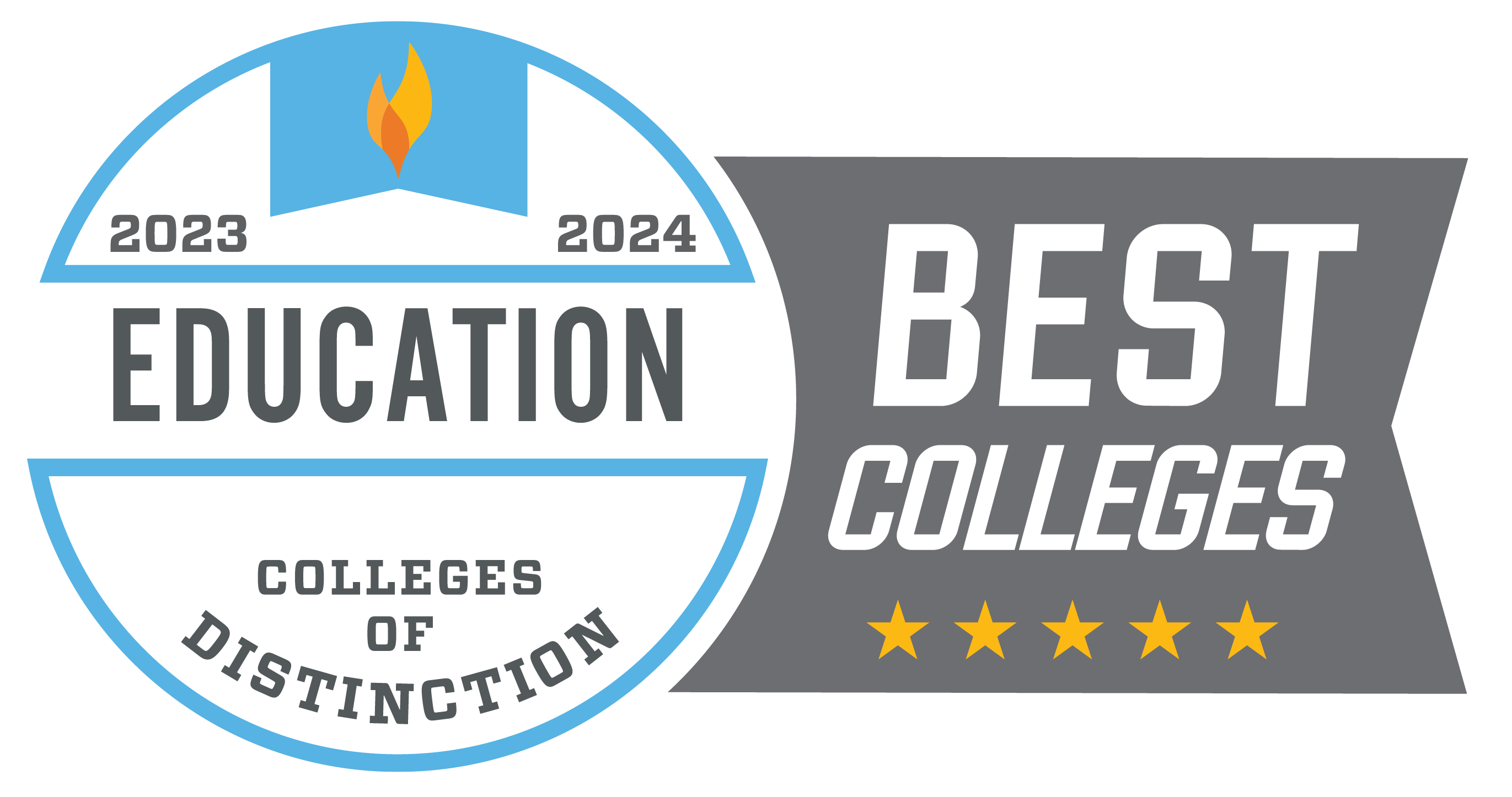Our education programs are built to help each student become exactly the teacher they're meant to be and what students need.
Offering a wide variety of undergraduate and graduate teacher education degree and certification-only programs, the School of Education provides many opportunities for students to pursue their life's work as changemaker educators.
Student Outcomes
Teachers prepared at Nazareth University:
- demonstrate the knowledge to be successful educators
- implement effective instruction for diverse learners in various settings
- reflect critically on their practice and the profession
- have high passing rates on certification exams
- have high percentage of employment/enrollment in graduate school
Contact us and learn more about our faculty.
See which steps to complete when, to get certified by New York state.
Information and forms for Nazareth undergraduate and graduate education students and for sponsoring/cooperating teachers.
Students, faculty, and staff in the School of Education serve the wider community in multiple ways that also provide opportunities for a wide variety of experience with children and young adults, and learning.
Financial Support for Education Students
Graduate students: Teacher Residency Programs are 15-month programs that pay you to co-teach in a local school and provide a tuition scholarship and mentoring while you earn your master's from Nazareth.
Undergraduate and graduate students: Teacher Opportunity Corps Program (TOC II) supports historically underrepresented individuals, particularly males of color, for teaching careers.
Undergraduate students: Noyce STEM Teacher Scholarship provides tuition support, paid research experience, mentorship, seminars, STEM teaching field experience, and more for Naz juniors and seniors who want to teach science or math in a high-need school district.
Graduate students: Clinical Assistantships can save you a third of the total tuition cost, as you gain valuable experience as a clinical assistant.
School of Education Mission
The mission of the School of Education is to prepare teachers who are educated in the liberal arts and committed to a life guided by intellectual, moral and ethical values. To carry out its mission, the School of Education:
- demonstrates the liberal arts' contribution to supporting and enhancing professional preparation;
- recruits faculty members who support the school's goals, are sensitive to the needs of individual students, are committed to teaching and scholarship, and connect practice to theory;
- provides curricula that challenge students to high academic achievement and prepare them to become ethical and reflective teachers;
- advances in its students the intellectual development necessary for critical thinking, problem-solving, and effective communication;
- promotes respect for diversity through culturally responsive study and instruction, diverse clinical placements, and a commitment to recruit a more diverse faculty and student population;
- employs technology to extend the professional expertise of both faculty and students;
- serves the community's children and families;
- supports dynamic collaboration between its faculty and the broader community of schools, agencies, and cultural institutions for mutual professional growth.
School of Education “Diversity, Equity, Inclusion, and Social Justice” Commitment
The School of Education at Nazareth University affirms that all people have a right to education and that it is the ethical responsibility of teachers and teacher educators to critically examine their practice through a lens of diversity, equity, and inclusion.
American schooling evolved with and from systems of racism, hierarchy, and exclusion that have allowed racial injustice and structural and institutional barriers to exist. Racism intersects with other forms of marginalization and oppression; a commitment to antiracism includes dismantling all forms of injustice in schools. These inequitable systems and other forms of oppression deeply impact schooling practices and the education of students. Contemporary examples include: disproportionality in special education, attacks on the rights and safety of trans and gender non-conforming students and of the Asian American Pacific Islander (AAPI) community, rising Islamophobia and Anti-Semitism, and restrictions on the freedom to teach about the history and legacy of slavery and racism.
We, the School of Education faculty and staff, commit to ...
- Critically reflecting on our own backgrounds and experiences to understand and challenge our individual and group biases and privilege.
- Taking active steps to help our teacher candidates explore, examine, and confront their own backgrounds (e.g., recognizing microaggressions, ableism, tokenism, stereotyping, heteronormativity).
- Engaging in sustained analysis of how our individual and group biases inform policies, curriculum, teaching practices, and interactions with each other and across the campus.
- Valuing and honoring the lived experiences and heritage of Black, Indigenous, and people of color (BIPOC) to "cultivate the genius of every student" (Muhammad, 2020).
- Teaching, acting and speaking against systemic racism, white supremacy, and unjust power dynamics in the schooling system and in the larger social structures.
- Deepening understanding of the greater Rochester area's rich history of civil rights activism and legacy of racist practices (e.g., redlining, racist housing covenants, inaccessibility, redistricting, and segregation) as it impacts education.
- Working with our community partners in addressing systemic inequities, including but not limited to interpersonal, institutional, and structural racism.
- Recruiting and retaining diverse teacher candidates, faculty, and staff with identities and experiences that reflect the varied experiences of the P-12 student population.
- Preparing teachers to respect and honor the intersectional identities of their students and teach from an asset-based mindset to create fully inclusive classrooms.
- Preparing teachers to engage in and advocate for culturally responsive-sustaining and anti-racist practices.
- Examining and limiting the impact of structural and institutional racism through annual review of our School of Education practices and policies.
By reflecting upon and challenging our individual and group biases and engaging with an ongoing process of critical reflection and growth, we learn as we teach, building a community committed to challenging all forms of oppression. We recognize that we still have much work to do.
(Revised 9/17/21)
